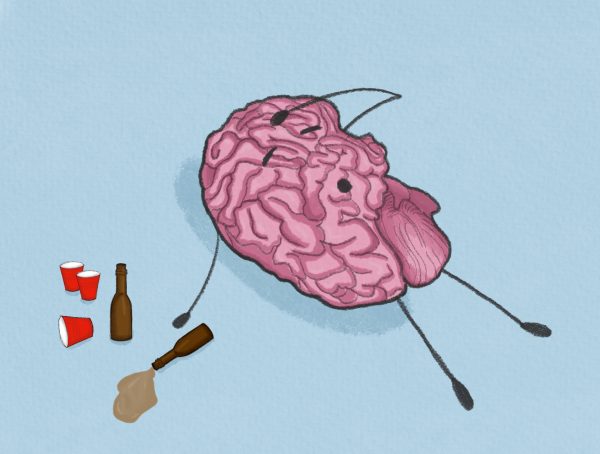
Researchers from Tulane and Louisiana State Universities have found a new connection between alcohol and stress through study of rat’s brains.
The researchers come from the Tasker lab at Tulane and Nicholas Gilpin’s lab at the LSU Health Sciences Center — and their research focused on a specific part of the rodent’s brain’s called the basolateral amygdala.
Combining Tasker’s expertise in stress and Gilpin’s expertise in alcohol consumption, the two submitted a proposal to the National Institutes of Health to study how stress can contribute to a rise in alcohol consumption. Using a rat model, they first examined alcohol’s effect on the basolateral amygdala and determined if there was a difference in stress response between males and females.
While the brain consists of both excitatory and inhibitory circuits, a balance between both types of circuits within the brain is necessary to ensure normal function. When the circuits are imbalanced, various problems — like epilepsy caused by hyperexcitation — can occur.
In previous studies, ethanol alcohol, the source of alcohol in beer, wine and spirits has been found to change synaptic circuit inhibition in the brain. Drawing on past research, Tasker said he and Gilpin chose to examine the effects of ethanol on inhibitory brain circuits, using concentrations of ethanol in rats that would correspond to binge-drinking concentrations for human adults. They focused on brain circuits of rat amygdalas, due to its role in emotional behavior and fear learning.
The Tasker lab studied how high concentrations of ethanol affect the electrical activity of neurons in brain slices. They saw that alcohol increased inhibitory signaling, consistent with decreased anxiety. The Gilpin lab studied the effect of ethanol in real animals by infusing ethanol directly into the brains of rats. The researchers used a rat maze to simulate anxiety causing behavior and found the infusion of ethanol reduced anxiety levels.
Their findings were significant.
The researchers discovered that the inhibitory signaling was triggered by an inflammatory response within a couple minutes after the introduction of ethanol in both iterations of the study. The study found that the mechanism only applied to males, while female rats did not respond.
Researchers found ethanol disproportionately affected males, but the findings do not mean female stress and anxiety is unaffected by alcohol consumption.
“My hunch is that females would be more sensitive in other areas of the brain, maybe like the hippocampus,” Tasker said.
Impact on Campus
Ranked among top party schools in America, Tulane is a prime representation for possible implications of the study’s findings. With a rigorous academic environment and equally notorious drinking and party culture, a “work hard, play hard” attitude is pervasive on campus.
“High stress environments often have higher rates of substance abuse, the reason being that those tap into your pleasure centers,” Tasker said. “To try to compensate for some of the high stress and anxiety, you activate [your pleasure centers] artificially with drugs or alcohol.”
With more research still to be done, Tasker said the relationships identified through the study between alcohol overconsumption and the neural immune system may provide avenues for treating chronic alcohol use and associated neurodegenerative disease.
“One implication is that, supposedly, we could block an intense intoxication level by blocking the inflammatory response. [In effect,] sober somebody up by blocking that cellular inflammatory response,” Tasker said.
Moving forward, Tasker said he and Gilpin hope to continue researching cellular mechanisms in alcohol’s interaction with stress. Next steps involve identifying the neural receptor for ethanol and the exact mechanism for increasing synaptic inhibition, accounting for differential sensitivities in males and females.






















Leave a Comment